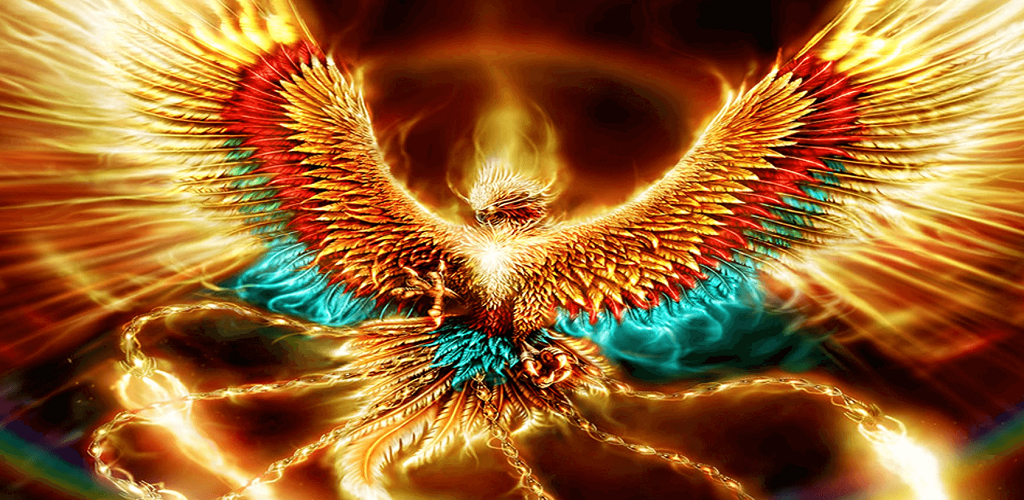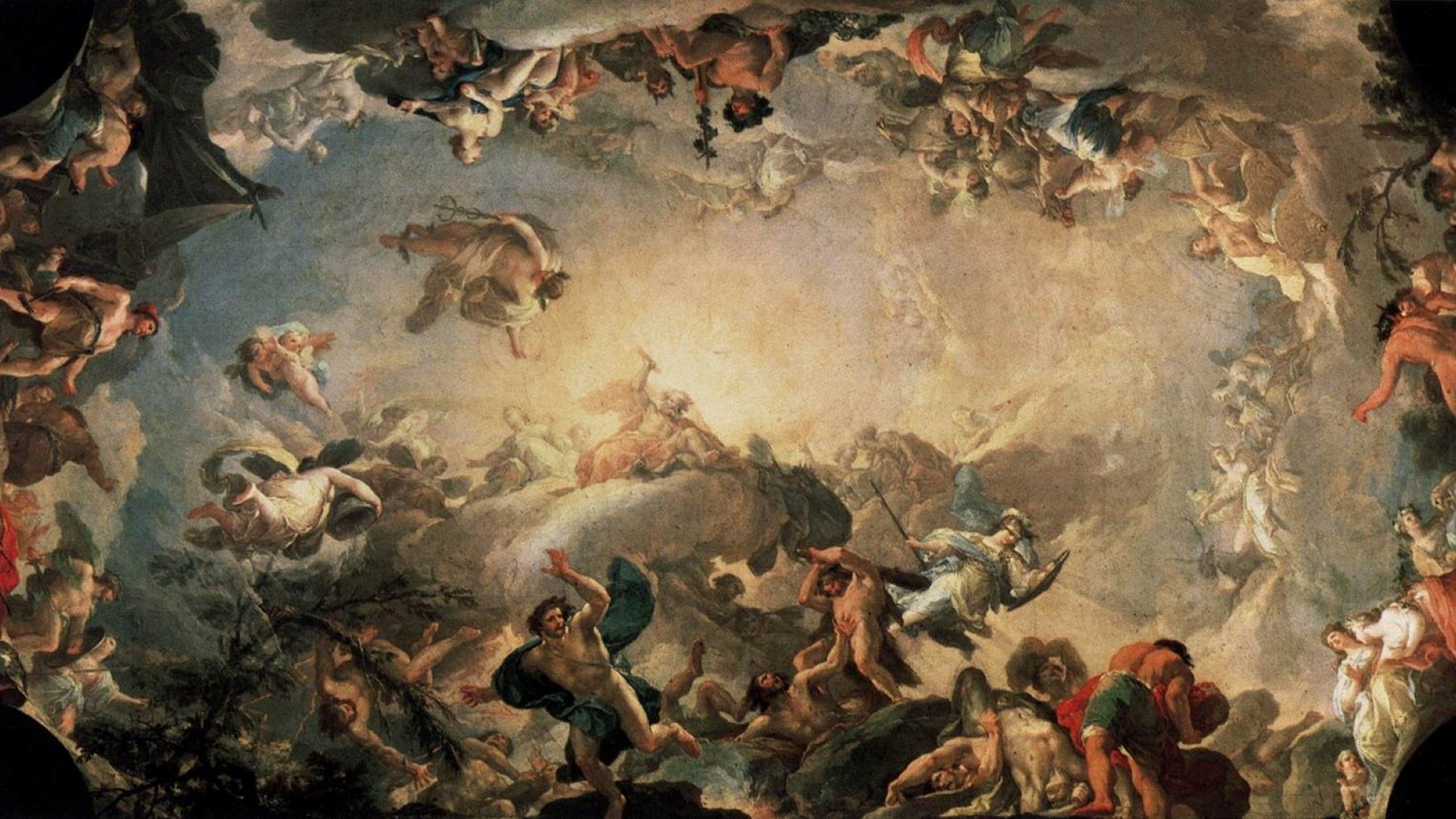
ERICHTHONIUS
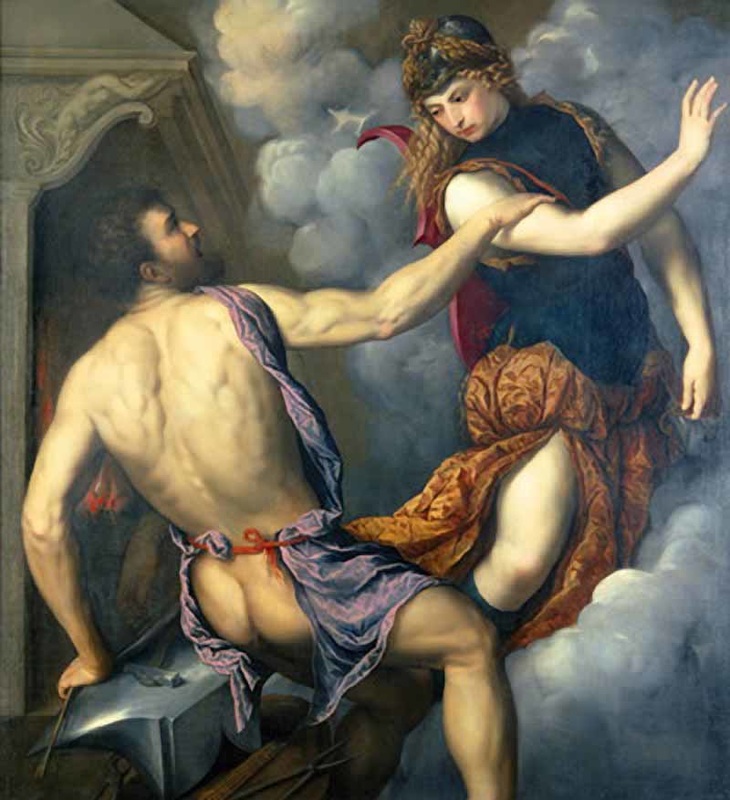
GO TO:
ERICHTHONIUS OF ATHENS
ERICHTHONIUS OF DARDANIA
In Greek mythology, Erichthonius (Ancient Greek: Ἐριχθόνιος) refers to the following two figures:
Erichthonius, the autochthon king of Athens.
Erichthonius, king of Dardania and son of Dardanus.
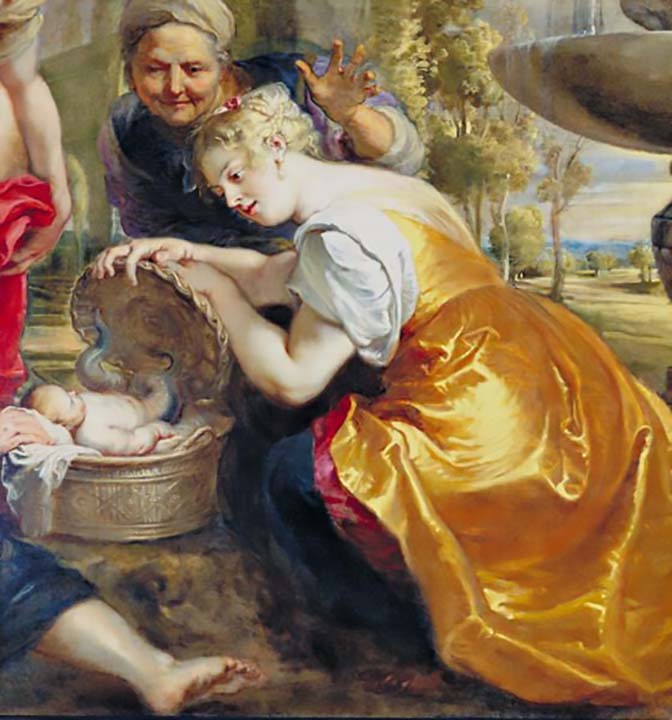
ERICHTHONIUS OF ATHENS
In Greek mythology, King Erichthonius (Ancient Greek: Ἐριχθόνιος, the name coming from: ἐρέχθω - "shake" (or ἔριον - "wool") and χθών - "Earth") was a legendary early ruler of ancient Athens. According to some myths, he was autochthonous (born of the soil, or Earth) and raised by the goddess Athena.
Early Greek texts do not distinguish between him and Erechtheus, his grandson, but by the fourth century BC, during Classical times, they are distinct figures.
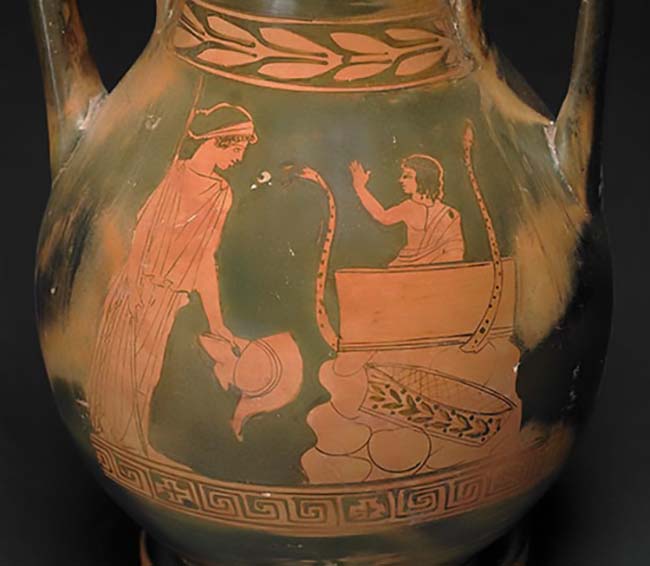
MYTHOLOGY
Birth
According to the Bibliotheca, Athena visited the smith-god Hephaestus to request some weapons, but Hephaestus was so overcome by desire that he tried to seduce her in his workshop. Determined to maintain her virginity, Athena fled, pursued by Hephaestus. He caught Athena and tried to rape her, but she fought him off.
During the struggle, his semen fell on her thigh, and Athena, in disgust, wiped it away with a scrap of wool (ἔριον, erion) and flung it to the earth (χθών, chthôn). As she fled, Erichthonius was born from the semen that fell to the earth. Athena, wishing to raise the child in secret, placed him in a small box. And then made sure no one would ever find out by giving him away.
Athena gave the box to the three daughters (Herse, Aglaurus and Pandrosus) of Cecrops, the king of Athens, and warned them never to look inside. Pandrosus obeyed, but Herse and Aglaurus were overcome with curiosity and opened the box, which contained the infant and future-king, Erichthonius (sources are unclear regarding how many sisters participated).
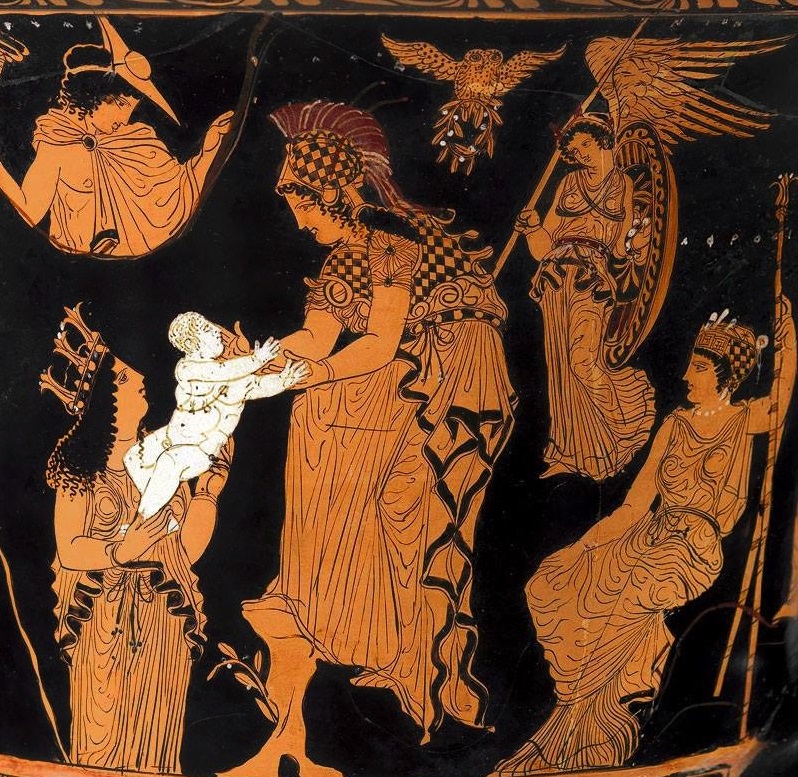
The sisters were terrified by what they saw in the box: either a snake coiled around an infant, or an infant that was half-human and half-serpent. They went insane and threw themselves off the Acropolis. Other accounts state that they were killed by the snake.
An alternative version of the story is that Athena left the box with the daughters of Cecrops while she went to fetch a limestone mountain from the Pallene peninsula to use in the Acropolis. While she was away, Aglaurus and Herse opened the box. A crow saw them open the
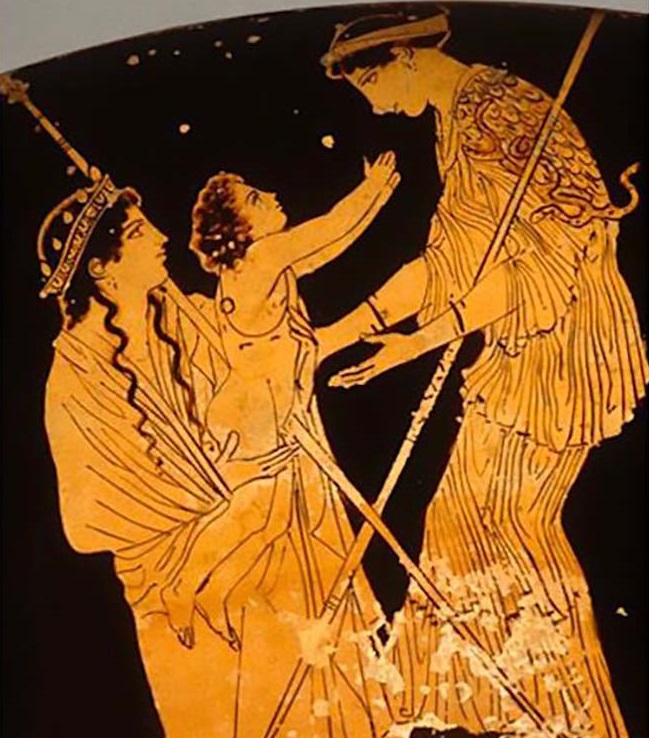
Reign
When he grew up, Erichthonius drove out Amphictyon, who had usurped the throne from Cranaus twelve years earlier, and became king of Athens. He married Praxithea, a naiad, and had a son, Pandion I. During this time, Athena frequently protected him.
He founded the Panathenaic Festival in the honor of Athena, and set up a wooden statue of her on the Acropolis. According to the Parian Chronicle, he taught his people to yoke horses and use them to pull chariots, to smelt silver, and to till the earth with a plough.
It was said that Erichthonius was lame of his feet and that he consequently invented the quadriga, or four-horse chariot, to get around more easily.
He is said to have competed often as a chariot driver in games. Zeus was said to have been so impressed with his skill that he raised him to the heavens to become the constellation of the Charioteer (Auriga) after his death.
Erichthonius was succeeded by his son Pandion I. The snake is his symbol, and he is represented in the statue of Athena in the Parthenon as the snake hidden behind her shield. The most sacred building on the Acropolis of Athens, the Erechtheum, is dedicated to Erichthonius.
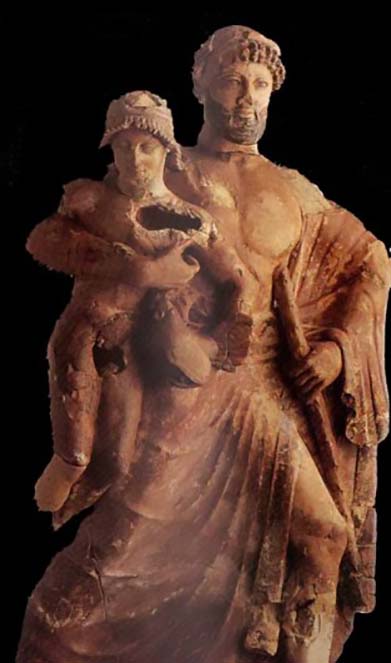
ERICHTHONIUS OF DARDANIA
The House of Troy began with the arrival of Dardanus in Asia Minor after the Great Flood. King Teucer welcomed him to the region, gave him land and also the hand in marriage of his daughter Batea.
Batea would subsequently give birth to two sons for Dardanus, Ilus, the elder, and Erichthonius.
King Erichthonius
Ilus would predecease his father, and so upon the death of Dardanus, Erichthonius would inherit the throne and the kingdom of Dardania. Dardania had flourished under Dardanus, and the state continued to do so under King Erichthonius.
Erichthonius would marry the Naiad Astyoche, daughter of Simoeis, who would give birth to a son called Tros; Tros would later give his name to the Trojan people.
Erichthonius had a long reign, ruling for perhaps as long as 65 years before the throne of Dardania passed to his son, Tros.
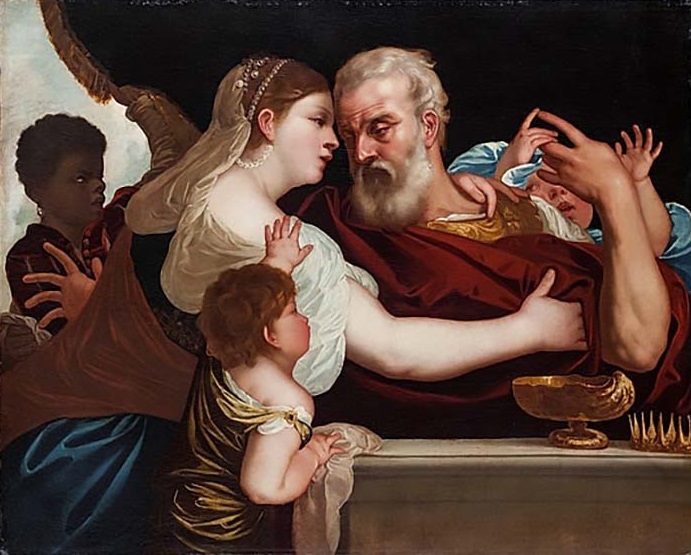
The Horses of Erichthonius
In his day King Erichthonius was considered the wealthiest of all kings, and was also noted for his extremely large stable of mares, where there were perhaps as many as 3000 mares. The king’s horses would feed upon the lush meadows of his kingdom.
The Anemoi god Boreas observed the mares of Erichthonius, and taking the form of a stallion, as was the want of the wind gods, he did mate with a number of the mares. These mares would give birth to 12 fillies. These horses were special, with unmatched speed, horses which could traverse over the top of a field of wheat without damaging a single ear, or could gallop over the sea without getting their feet wet.
Horses were closely associated with the House of Troy, and later, when Erichthonius’ grandson Ganymede was abducted by Zeus, part of the compensation given by the god came in the form of swift horses.
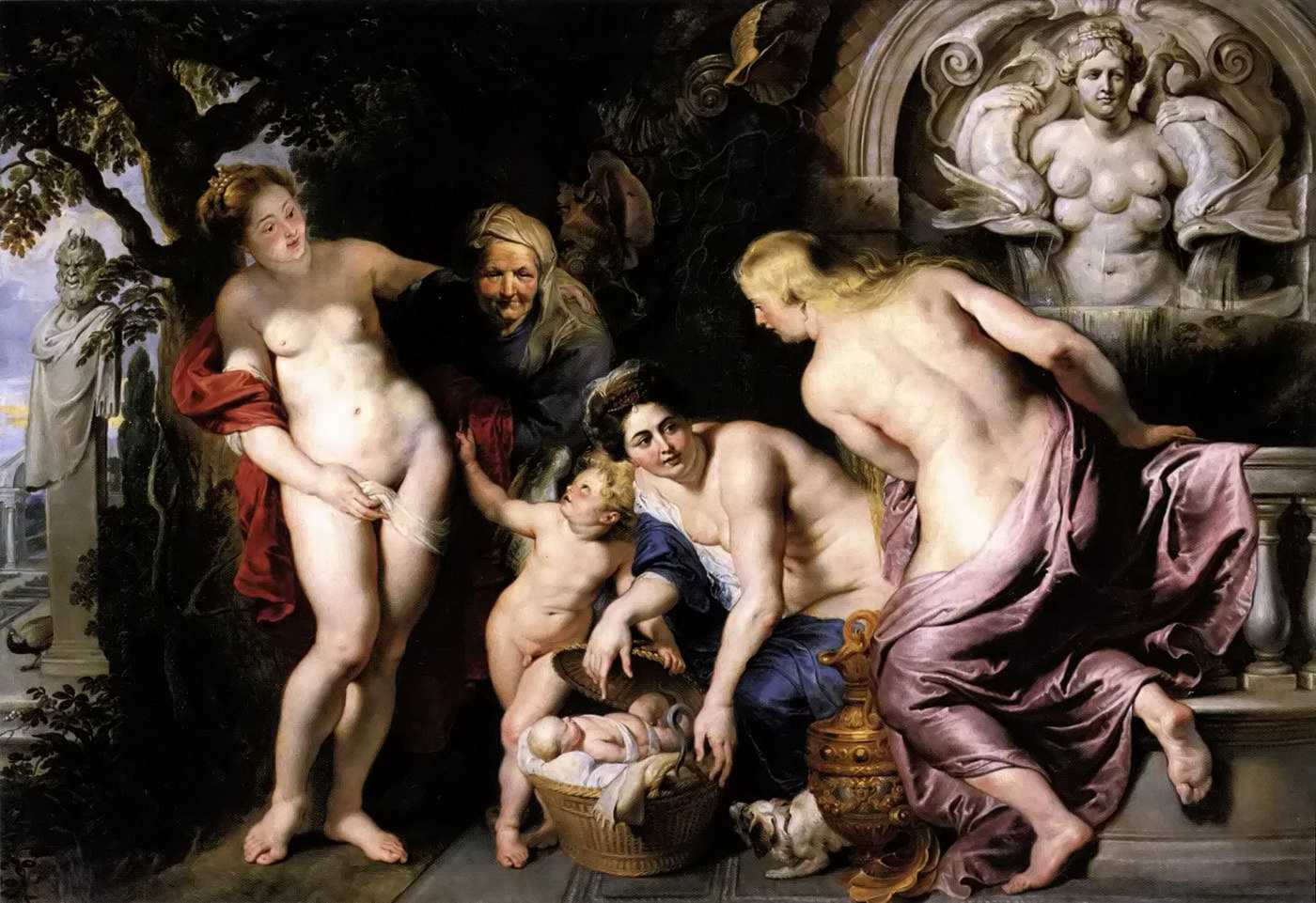
Sources
Homer, Iliad 2.546–551.
Graves, 25 "Athene's Nature and Deeds", p. 99.
Apollodorus, 3.14.6.
Dictys Cretensis, Trojan War Chronicle 3.5 & 4.22
Dionysius of Halicarnassus, Antiquitates Romanae 1.50.3
Beekes, s.v. Ἐριχθόνιος, has suggested a Pre-Greek proto-form *Erektyeu-
Graves, 25 "Athene's Nature and Deeds", p. 99.
Strabo, Geographica 13.1.48
"Greek Legends and Myths"
"Wikipedia"
Our Mobile Application
Check out Our Mobile Application "Ancient Greece Reloaded"
